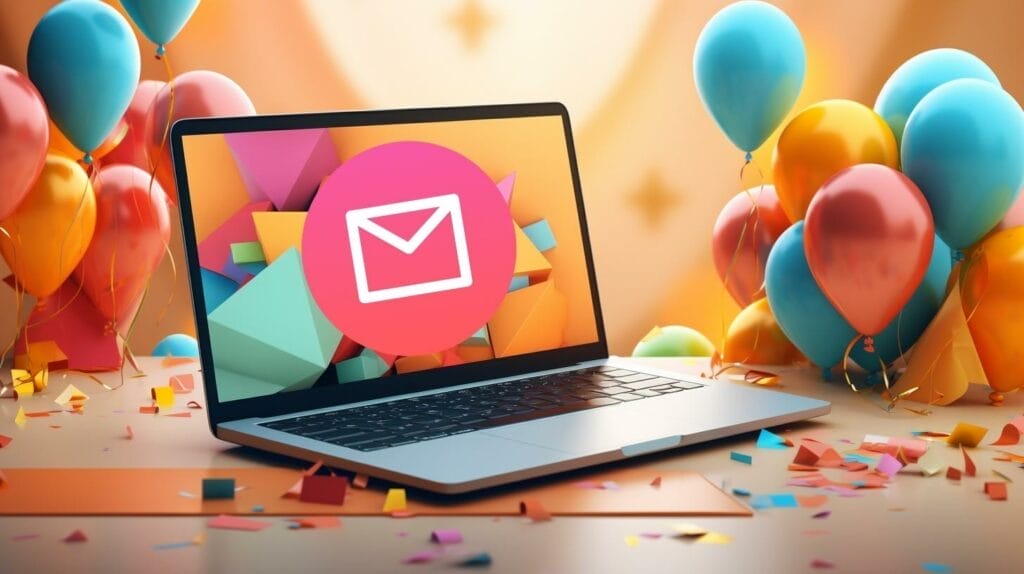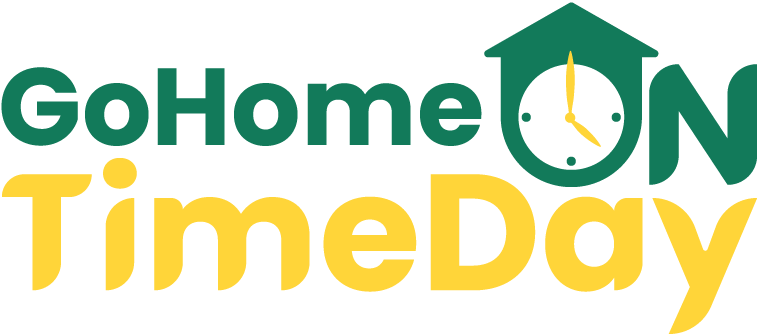Today marks a significant turning point for you! Get ready as I lead you through the essential roles required to complete the final segment of your responsibility. Whether it’s handling unresolved work or crafting the most effective farewell email, as well as scheduling the all-important exit interview, we’ve prepared everything for you.
We will also help you to always remember digital details, like passwords and accounts. And, of course, we’ll help you plan a goodbye lunch – the perfect end to your tenure.
Let’s embark on this final journey together, ensuring you leave your workplace with grace, professionalism, and sentimentality.
Key Takeaways
- Complete all tasks and handover reports
- Tidy up and organize workspace
- Craft an effective farewell email
- Schedule and request an exit interview
Wrap Up Loose Ends and Organize Your Workspace
Before heading out the door on my last day, I’ll ensure all my tasks are complete, especially any briefing documents or handover reports.
It’s also critical that I tidy up my workspace, leaving it neat and organized for the next person.
Lastly, I can’t forget to secure all important files and documents – it’s only fair to the team I’m leaving behind.
Finishing Briefing Documents or Job-Handover Reports on Time
I’ve found that on my last day, finalizing all briefing documents and job-handover reports is crucial, effectively wrapping up unresolved matters and organizing my workspace.
This involves meticulously going through all work documents, ensuring they’re ready for your replacement. It’s a tedious task, but it’s necessary to make the transition smoother.
It’s not just about leaving the office; it’s about leaving it where anyone can step in and understand what’s happening. So, I take the time to wrap things up properly, not just for my peace of mind but for the benefit of those who come after me. It’s a gesture of professional courtesy that also helps maintain a seamless workflow.
Cleaning and Organizing Your Workspace
On my final day, I must thoroughly clean and organize my workspace to wrap up any remaining unresolved matters.
I start by collecting all office supplies, discarding unnecessary items, and ensuring to trash your documents. Next, a sweep of my computer to delete unnecessary files and back up essential data is necessary.
Here’s a handy table to guide you through the process:
| Action | Description |
| Collect Office Supplies | Gather pens, papers, and other items |
| Handle Personal Documents | Discard or take home any personal documents |
| Computer Sweep | Delete unnecessary files and back up essential data |
Secure Important Files and Documents
I’ll secure all important files and documents as I prepare to leave. I’ll also make sure to wrap up any unresolved matters that could create confusion for the next person in my position.
It’s crucial to save any important work samples that showcase my growth and achievements. They’ll be useful for future reference or showcasing my skills in my next role.
I’ll carefully organize documents on the shared drive, ensuring they’re easy to find. I’ll ensure all secure important files and documents are password protected, where necessary.
I’ll also leave clear, concise instructions about where to find key resources. Though it’s my last day, leaving everything for the next person is important.
Saying Goodbye: Crafting an Effective Farewell Email

Now, let’s tackle the task of doing this through an email. We’ll look at keeping it professional and heartfelt while providing your contact details for future networking opportunities.
We’ll also cover timing, ensuring your email is sent at the most appropriate moment.
Keeping it Professional and Heartfelt
I’m going to guide you through the process of crafting a heartfelt yet professional email on your last day of work. Leaving a job can be emotional, but it’s crucial to maintain your professional reputation while expressing your feelings.
To do this, your email should be:
- Express gratitude for the experiences and opportunities you’ve had.
- Remember to thank colleagues who’ve supported you.
- Mention specific projects or milestones you’re proud of.
- Give contacts a way to keep in touch.
- Share your LinkedIn profile or professional email, if appropriate.
- Reiterate your willingness to continue professional relationships.
This balance of emotion and professionalism ensures you leave on a positive note, paving the way for future networking opportunities.
Sharing Contact Details for Future Networking Opportunities
In this section, we’ll delve into the importance of leaving behind your contact details to maintain professional connections. Providing your LinkedIn profile and personal contact information facilitates future networking opportunities, keeping doors open for future opportunities. It’s essential to stay in touch and nurture your professional network, even after you’ve left for a new job.
Your email should be thoughtful, showing appreciation for shared experiences and hope for future collaborations. It’s not just about parting ways but also about paving the way for future connections. This approach helps you leave on a high note, ensuring you remain a valued part of your colleagues’ professional network.
Scheduling Your Goodbye Email to Go Out at the Right Time
Despite the emotion involved, I’ll guide you through scheduling the email to go out at the right time, and we’ll also focus on crafting an effective message. On your last day of work, timing is crucial.
To emphasize scheduling:
- Scheduling
- Avoid sending your email first thing in the morning or late. Mid-morning or early afternoon is ideal.
- Consider your colleagues’ schedules. You don’t want your parting to be buried in their inbox.
To emphasize the message:
- Farewell Message
- Keep it positive and professional. This isn’t the time for grievances.
- Express gratitude, share a memory, and perhaps include your future contact details.
Requesting an Exit Interview: An Essential Step on Your Last Day
Let’s now focus on an often overlooked but crucial aspect of your last day: requesting an exit interview.
This isn’t only your chance to give honest feedback to your employer but also an opportunity to discuss potential future collaborations.
I’ll guide you through why it’s important, how to request it, and what key points you should bring up during this conversation.
The Importance of an Exit Interview and How to Request It
On my last day of work, I can’t emphasize enough the importance of an exit interview, and here’s how to request one. It is a chance to state your opinion about your soon-to-be former employer.
It’s a valuable opportunity to voice your reasons for leaving and provide feedback. To request a one:
- Politely express your desire to HR or your manager.
- Be clear about your intentions and reasons.
- Request it sooner rather than later.
Preparing Yourself for the Interview: Key Things to Discuss
I’ve found that preparing for your exit interview involves knowing some key things to discuss, which anyone can benefit from.
This conversation aids in the transition to your new position. It’s a perfect chance to showcase your professional experience, enhance your workplace skills, and take constructive feedback for your next job.
To better illustrate, here’s a table with key points to remember:
| Topic | Why it’s Important |
| Professional Experience | Discuss your growth and challenges |
| Workplace Skills | Highlight your developed competencies |
| Constructive Feedback | Suggest improvements for the company |
| New Position | Express your future career plans |
| Next Job | Explain how the company has prepared you for it |
Saying Thank You and Discussing Future Collaborations
I’m eager to express my gratitude on my last day and aim to discuss potential future collaborations during my departure interview. Saying thank you to my colleagues and superiors and showing gratitude for the time we’ve spent together is vital.
I want to stay in touch, nurturing these valuable relationships, even as I move on to new opportunities. It’s to let them know how they’ve helped you progress and likely appreciate knowing they have helped will likely strengthen these connections.
A lunch can serve as a great platform for this:
Expressing gratitude:
- Personally thanking each teammate
- Sharing memorable experiences
Discussing future collaborations:
- Exchanging contact details
- Proposing potential projects
Tying Up Loose Digital Ends: Passwords, Devices and Accounts
Now, let’s talk about tidying up our digital workspace. This might mean transferring important online documents and files. Resetting passkeys and leaving access to your work accounts for the next person.
Don’t forget about returning any work devices. Make sure all your personal information is completely erased.
Transferring Any Important Online Docs and Files
It’s crucial to remember to transfer any important online documents and files and tie up loose digital ends such as passkeys, devices, and accounts on your last day of work. This isn’t only a professional courtesy and ensures a clean digital slate when you leave.
Transferring Docs and Files:
- Push your work, like shared Google Docs, to a team member’s account.
- Export your Outlook contacts to Excel, and forward any necessary emails to your email.
Tying Up Digital Loose Ends:
- Change the passcode for shared accounts and inform your team.
- Unlink personal devices from company software.
Leaving Access to Work Accounts and Resetting Passwords
Before I walk out the door for the last time, I’ll ensure I’ve left access to the necessary work accounts and reset any passkeys, providing an unimpeded transition for my successor.
As the last day at work nears, I’ll begin this process by documenting all necessary information in a secure yet accessible manner. This will ensure the smooth continuation of duties in the work setting without any unnecessary hiccups.
I’ll also make sure to reset passwords for general office supplies like the printer or photocopier. As I progress in my career, I understand the importance of leaving no unresolved matters.
So, before I make my last rounds around the office, I’ll confirm that all digital assets are arranged for easy access.
Returning Work Devices and Ensuring Your Information is Erased
I’m going to focus on returning all the work devices and making sure that all my personal information is permanently erased from them.
In my final hours, I’ll trash my personal documents and carry out a thorough cleanse of the systems. It’s not just about returning work devices. It’s also about ensuring your information is erased.
The process involves:
- Make sure to hand over all work devices.
- This includes laptops, mobiles, and any other electronic devices.
- Erasing personal information.
- Trash documents.
- Sign out of all accounts.
- Reset the device to factory settings.
This will ensure that no personal data lingers on any device after I’ve left, maintaining my privacy and aligning with best practices.
What Are Some Tips for Making the Last Day of Work Memorable?
“On the last day of work, embrace the opportunity to leave a lasting impression. Reflect on your journey and express gratitude for the experiences gained. Share some of the best Wednesday quotes for work with your colleagues, to uplift spirits and leave them with positivity. Celebrate accomplishments and bid farewell with warmth, making it a memorable day for all.
Organize a Goodbye Lunch: The Perfect Conclusion to Your Last Day of Work

Let’s cap off your last day of work with a memorable lunch.
We’ll figure out the best setting and menu. Decide who to invite. Consider how to make it unforgettable with memorabilia and parting gifts.
These simple steps can turn a plain farewell into a perfect conclusion.
Choosing the Ideal Setting and Menu
Where should I plan my lunch? The ideal setting for lunch is somewhere casual and comfortable – a place that fosters easy conversation and camaraderie. It should be convenient for all coworkers and promote a relaxed atmosphere.
What type of menu would provide the perfect conclusion to my last day of work? The menu should cater to the tastes of my coworkers while also including a few of my favorite dishes. It should offer a variety of options and include dietary accommodations.
The final adieu on my work day is a chance to leave on a high note. A well-organized and thought-out lunch offers a chance for both closure and celebration on my last day.
Inviting Your Colleagues and Superiors
Once I’ve settled on the perfect setting and menu, it’s time to extend an invitation to my colleagues and superiors for a parting lunch on my last day at work. This event is an ideal platform to thank each co-worker personally and perhaps seek a letter of recommendation from my superiors.
Here’s how I’ve organized it:
| Activity | Detail |
| Invitation | Personalized to each colleague |
| Setting | Chosen for comfort and accessibility |
| Menu | Tailored to cater to everyone’s dietary preferences |
| Speech | To thank everyone and give a final farewell |
| Follow-up | Choose to say goodbye individually |
The objective is to leave a memorable impression on my colleagues and superiors, not just as a professional, but as a friend they shared their work lives.
Making it an Unforgettable Farewell: Memorabilia and Parting Gifts.
I’m planning to make my lunch a memorable event by giving out personalized parting gifts and sharing memorable stories with my colleagues.
This is an important thing to do on your last day to show you’re leaving on a high note and ready to adapt to change in life.
After all, making it unforgettable: memorabilia and parting gifts is the perfect way to say thank you and leave a lasting impression.
Personalized parting gifts can include:
- A small memento that’s meaningful to your team.
- A heartfelt note expressing your appreciation.
Sharing memorable stories can:
- Highlight your best moments together.
- Reinforce the bond you’ve built over time.
Frequently Asked Questions
What Should I Do if I Haven’t Found a New Job Yet?
If I haven’t found a new job yet, I’d focus on networking, revising my resume, and honing my interview skills. I’d ensure I’m applying to jobs fitting my skills and passions to increase my chances.
How Can I Use My Last Day of Work to Network for Future Opportunities?
On my last day, I’d seize the chance to network. I’d reach out to colleagues, expressing my gratitude and sharing my future plans. I’d also connect with them on LinkedIn to keep communication open.
Should I Inform My Clients or Customers About My Departure?
You must inform your clients or customers about your departure. It’s a professional courtesy, and it allows you to keep those relationships intact for future networking or business opportunities.
How Should I Handle Any Remaining Vacation or Sick Days?
When handling remaining vacation or sick days, I’d first check company policy. If allowed, I’d take them before my final day. If not, I’d ask for them to be paid out in my final paycheck.
What if I Have Company Property at Home? How Should I Return It?
If I’ve got company property at home, I’ll make arrangements to return it promptly. I’ll gather all the items, list them for clarity, and bring them to the office or ship them if I’m working remotely.
Conclusion
So, there you have it! On my last day, I wrapped up loose ends, tidied my workspace, wrote a heartfelt email, requested an exit interview, and tied up any digital loose ends.
I also organized a goodbye lunch, marking a perfect end to my journey. This was my way of leaving on a positive note, ensuring I left no mess behind and preserving the relationships I built.
After all, you never know when paths may cross again.

